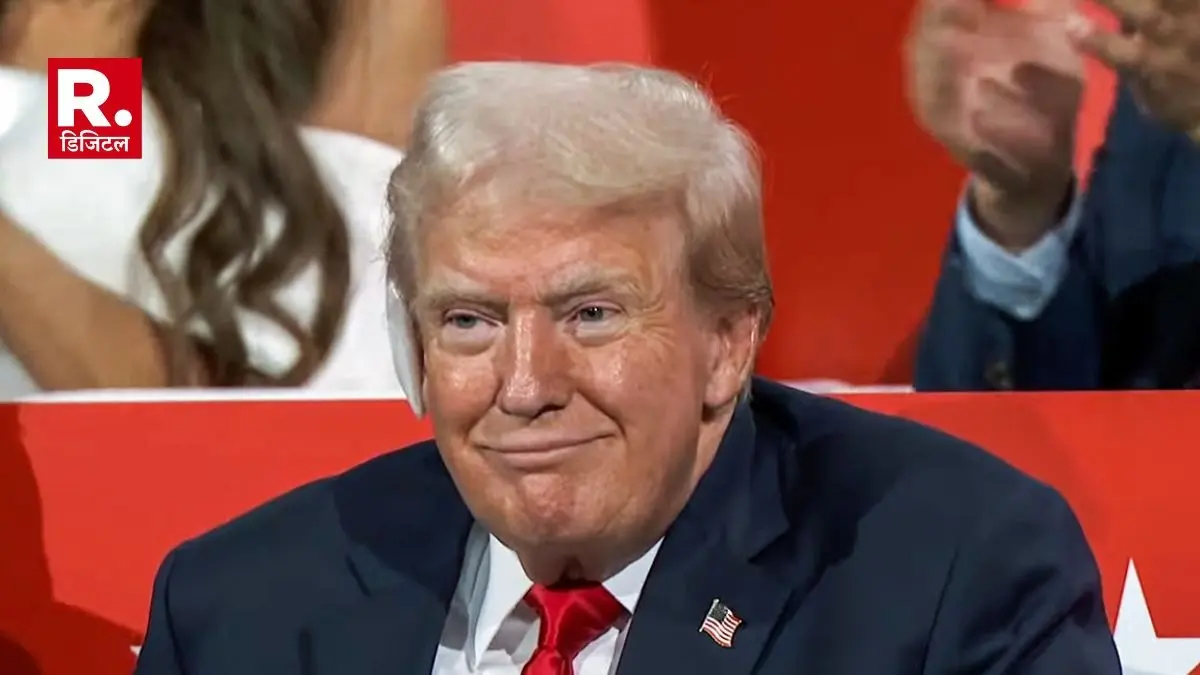Updated 31 May 2025 at 08:39 IST
Donald Trump Doubles Steel and Aluminum Tariffs to 50%, Escalating Global Trade War
Trump hikes steel and aluminum tariffs to 50%, aiming to boost U.S. jobs but drawing sharp criticism from allies and raising global trade tensions.
- Republic Business
- 2 min read

U.S. President Donald Trump on Friday announced a dramatic escalation in his trade policy, declaring that tariffs on imported steel and aluminum will rise from 25% to 50%. Speaking at a campaign-style rally at U.S. Steel’s Mon Valley Works near Pittsburgh, Trump said the move was aimed at strengthening domestic manufacturing and protecting American jobs.
“We are going to be imposing a 25% increase. We're going to bring it from 25% to 50%—the tariffs on steel into the United States—which will even further secure the steel industry in the United States,” Trump said to loud cheers. The tariff increase is set to take effect Wednesday and will apply to a wide range of products, including raw steel and aluminum as well as derivative goods like gas ranges, air conditioner coils, and kitchenware.
The announcement came shortly after Trump praised a $14.9 billion deal between Nippon Steel and U.S. Steel, calling it a “win” for American steelworkers. Trump framed both the merger and the tariff hike as part of his broader effort to revive the U.S. industrial base, particularly in swing states like Pennsylvania, a critical battleground in the 2024 election.
Markets responded quickly. Shares of Cleveland-Cliffs Inc (CLF.N), a major U.S. steelmaker, soared 26% in after-hours trading on expectations of reduced foreign competition and higher domestic prices.
Advertisement
But the move triggered immediate condemnation from key trade partners. Canada’s Chamber of Commerce called the tariffs “antithetical to North American economic security,” warning of disruption to efficient cross-border supply chains. Australia’s Trade Minister Don Farrell slammed the decision as “unjustified and not the act of a friend,” warning it would hurt both consumers and global trade relations.
The U.S., the world’s largest steel importer outside the EU, brought in 26.2 million tons of steel in 2024, valued at $147.3 billion across 289 product categories. Nearly two-thirds of that was aluminum. Trump’s tariff hike—under the Section 232 national security provision—is the most aggressive since his first term, when similar measures were imposed on Chinese industrial goods.
Advertisement
The announcement underscores Trump’s return to economic nationalism, deepening tensions with allies and intensifying a global trade war that shows no signs of cooling as the presidential campaign accelerates.
Published By : Rajat Mishra
Published On: 31 May 2025 at 08:39 IST
